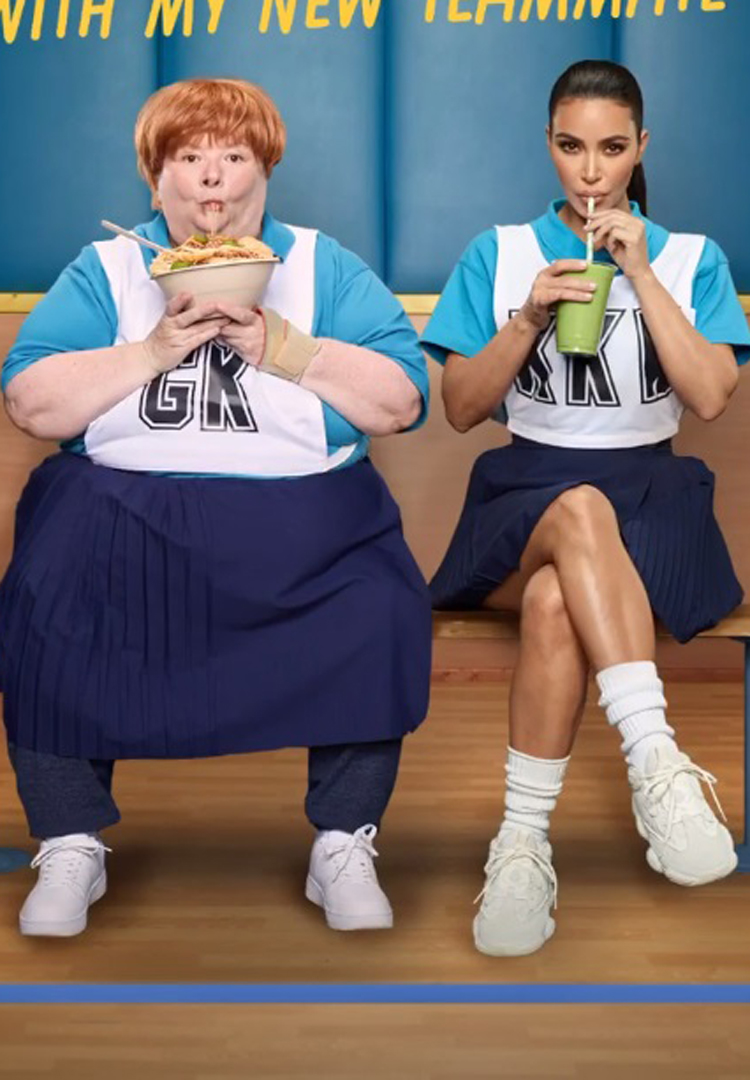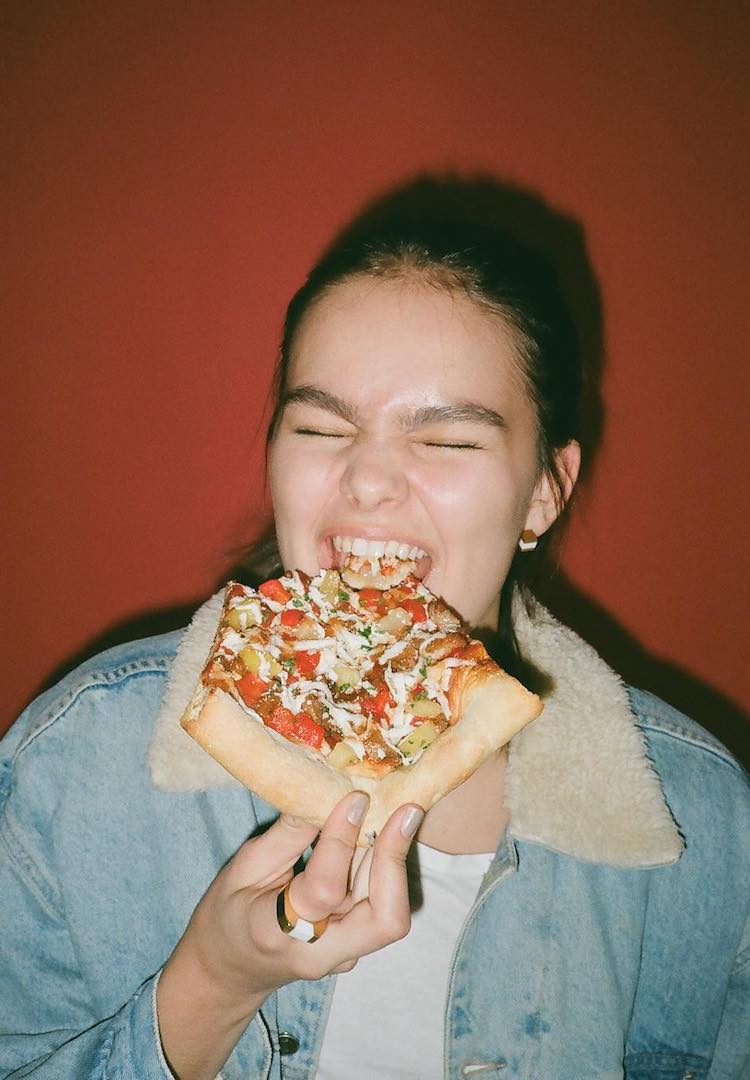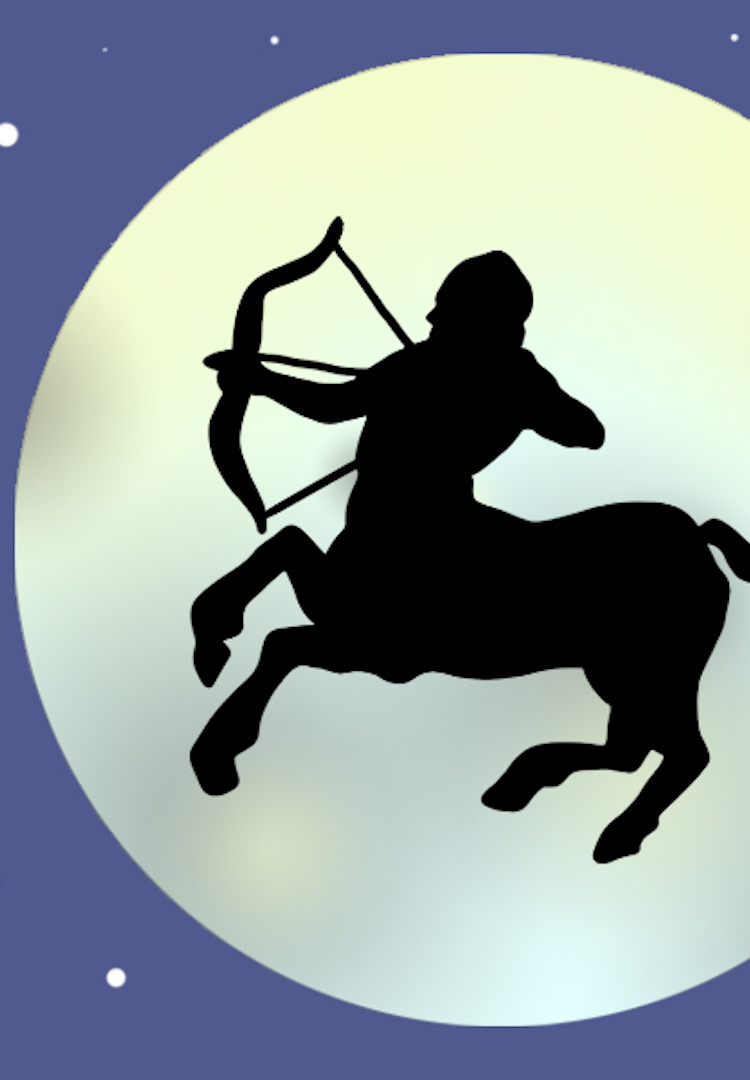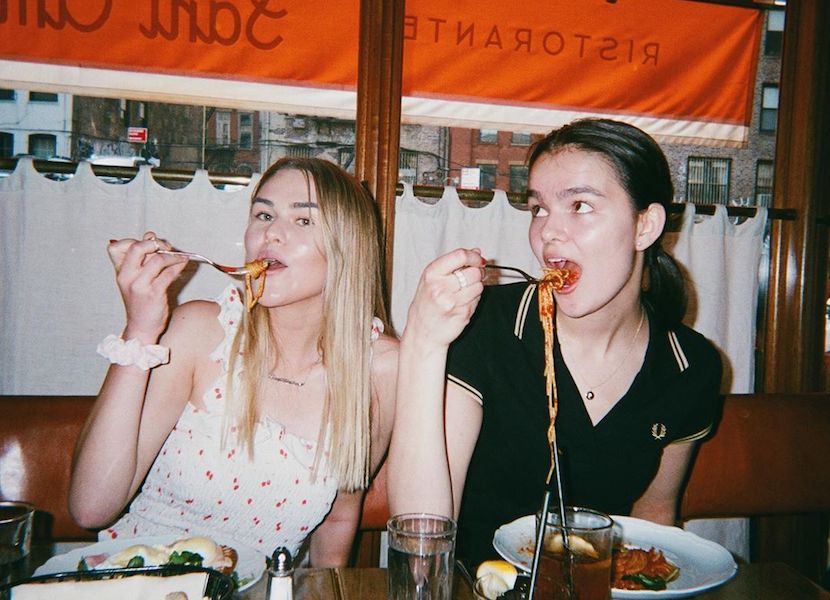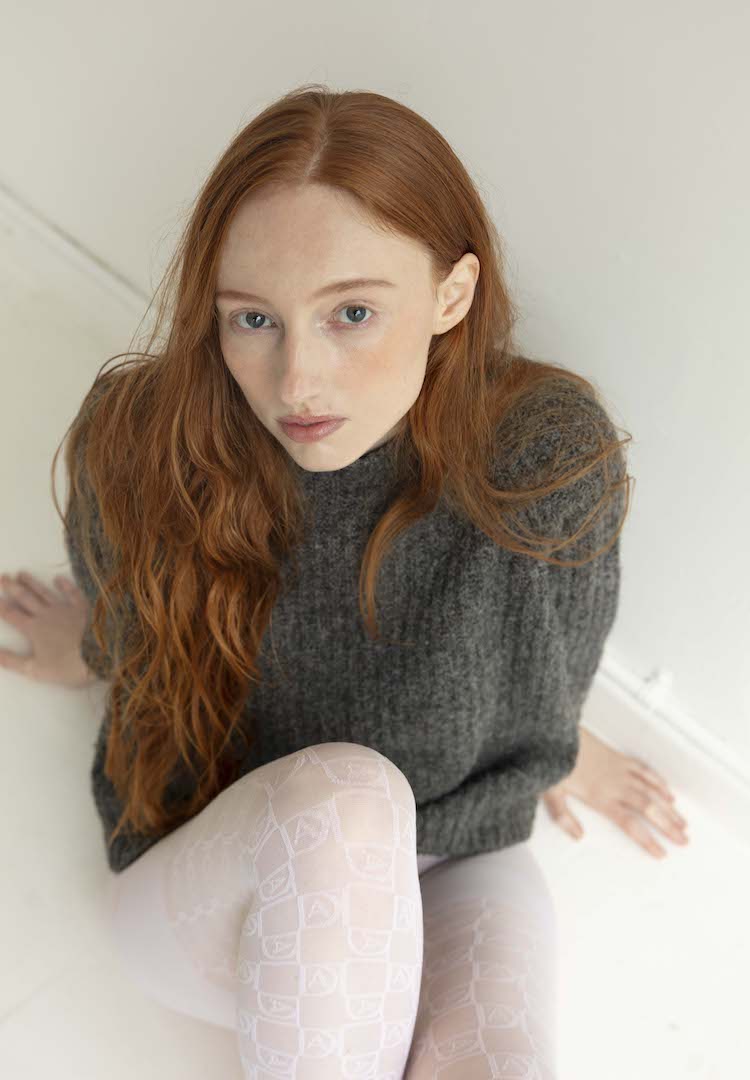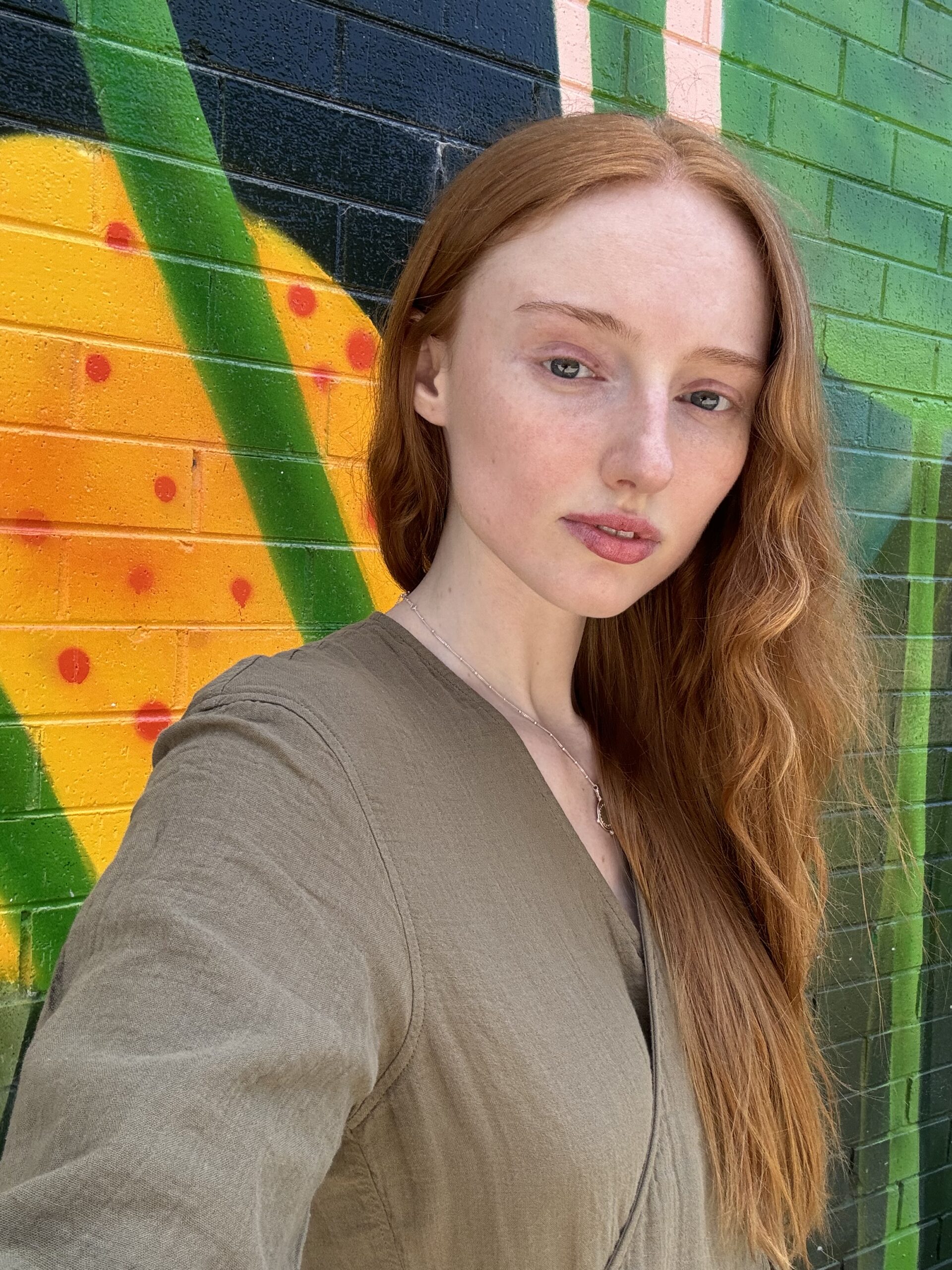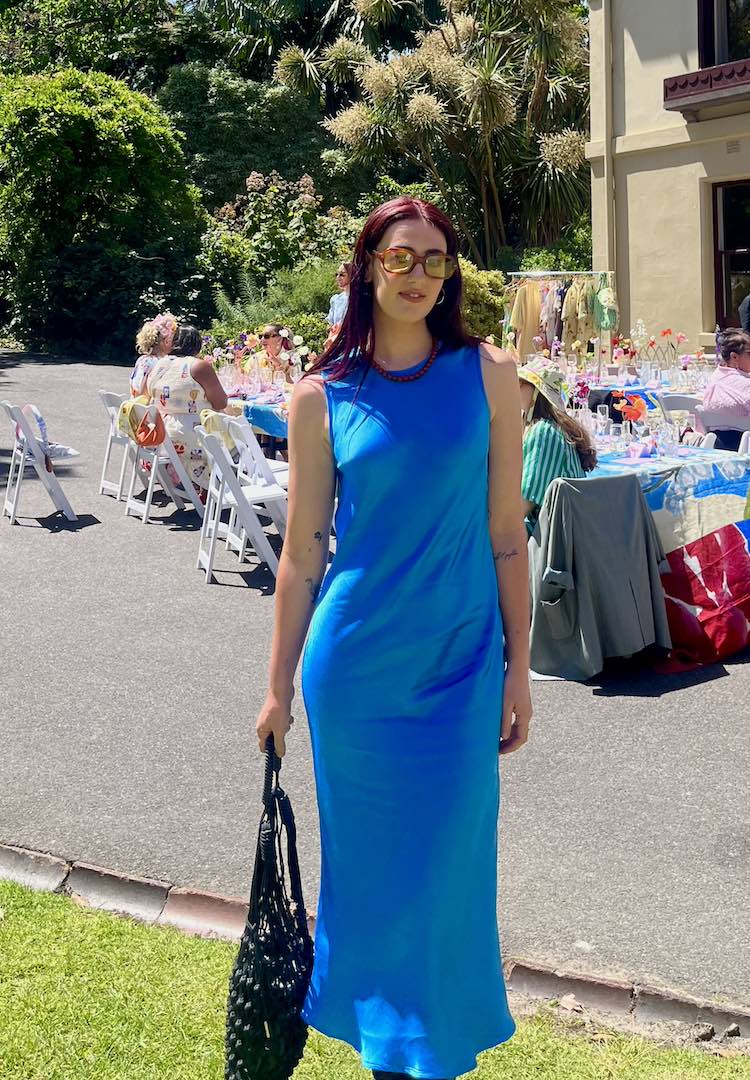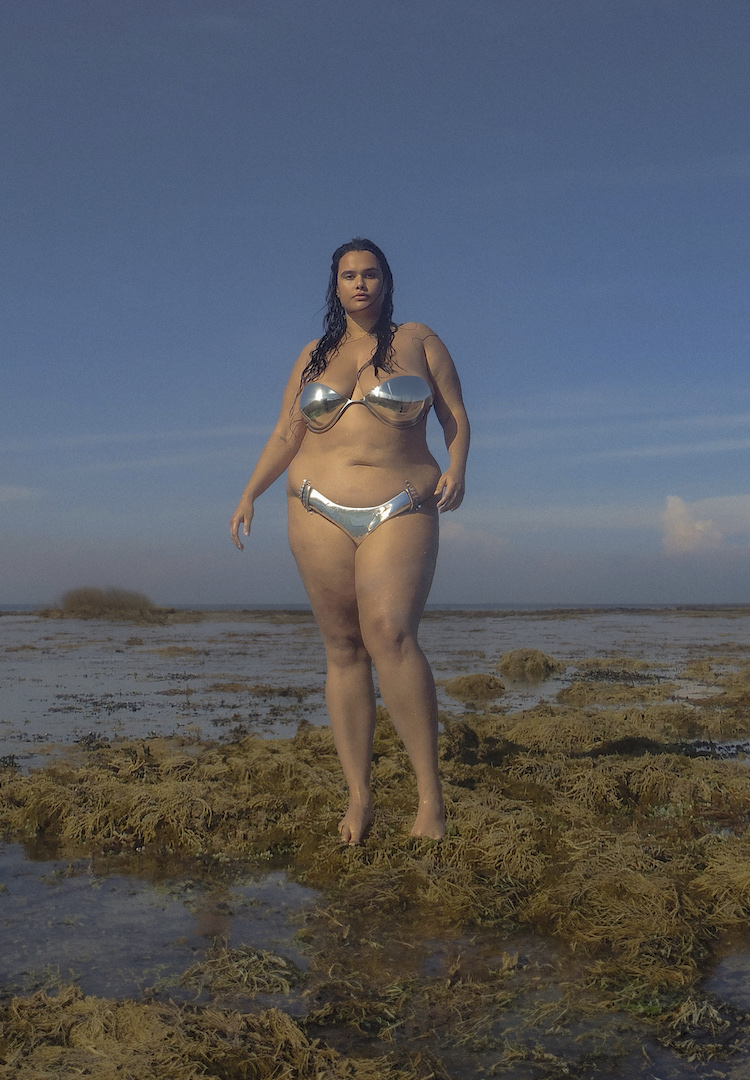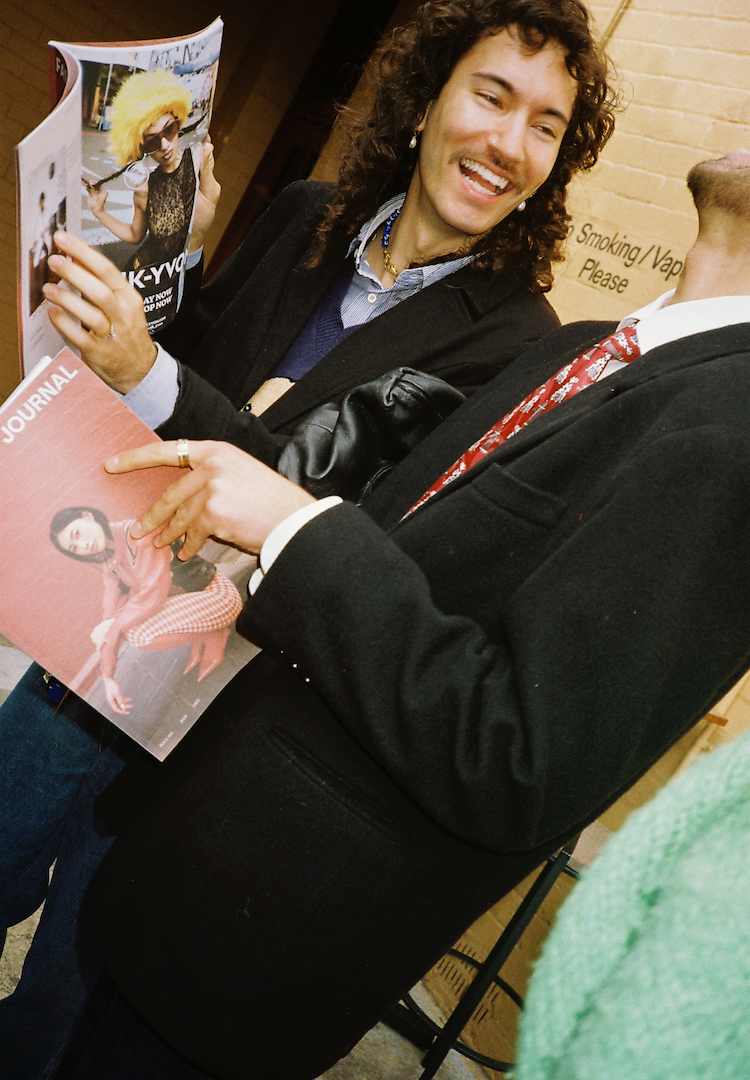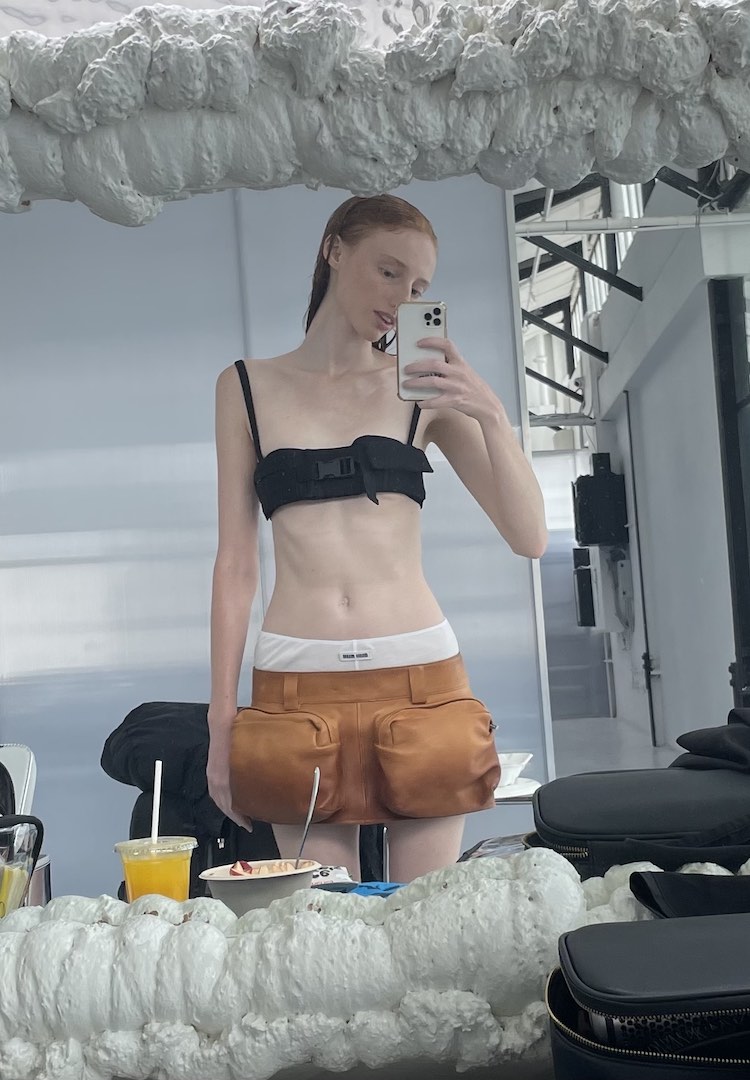What’s with our fascination with the ‘model diet’?
IMAGES VIA MODELS THAT EAT
Words by Ruby Staley
I ask Phoebe Pojo, the brains behind Models That Eat.
The modelling industry has always had a strong hold over me. From a young age, I have been mystified by the fashion and beauty models from magazines; reposting runway images on Tumblr and organising my favourite model-off-duty-looks into Instagram saved folders.
This deep-seated infatuation extended to not just wanting to look like a model, but wanting to live like a model. The appeal wasn’t simply skin-deep and as a teenager, I was hungry to learn the ways I could achieve and sustain the model lifestyle I so desired.
As many young people do, I naïvely held the belief that the key to emulating this lifestyle was to appropriate a model’s diet. Any model’s diet really, I wasn’t discriminating. So off I went, intensely researching the number of calories, healthy fats and superfoods I was to consume to grow a foot taller, and centimetres slimmer, to effectively transform into a model.
Shock horror. The method didn’t work.
It’s worrying to think back on my laser focus on models’ dietary habits. Not only because dieting did nothing good for my growing and hormonal teenage body and mind, but because of my complete oversight of the actual humans behind these diets.
What’s worse, I know that I’m not alone in equating models to their diets.
There are thousands of videos, articles and posts that continue to be published still today carrying titles like ‘What I Eat in A Day as a Model’, ‘Day on a Plate’ or ‘Eat like a VS Angel’. And people are consuming them.
It’s clear our society has a preoccupation with models’ eating habits, choosing to engage with these rather than their personalities and passions. We want to look like them, not value them as humans.
(Editor’s note: This mindset is one of the reasons we started our Just One Thing series, where we ask young models what they care about, not what they eat for breakfast. )
Former model and now YouTuber, Phoebe Pojo, is flipping this unhealthy obsession on its head. Her channel, Models That Eat, is described as “a safe space for models to discuss their relationship with food and their bodies”. The channel shares open and thoughtful conversations between Pojo and a variety of professional models, as they talk about their individual experiences within the industry over a hearty meal.
In short, Models that Eat appropriates our absurd cultural curiosity with models’ diets and uses it to give a platform to the professionals behind the plate.
“Everyone is looking for the ‘model diet’ or ‘what is this supermodel eating?’ or ‘what does it take to be this type of model?’,” explains Pojo.
“We have always been told to sit pretty, so I hope that models watch my videos and see that their voices are important and they deserve to be heard.”
Before launching the platform, Pojo had noticed that models’ lifestyles — and specifically the way they eat — was highly sought-after content on the Internet.
She also noticed the models who were candid about their diets were heavily criticised. Although audiences would be pressing models for their dietary tips and tricks, they were also quick to become harsh and critical.
It’s this criticism that makes models reluctant to speak out, notes Pojo.
“Models are scared out of telling their truths about their diet,” she says. “It’s a subconscious trauma that makes them fearful of tainting their image by telling their side of the story.”
In an industry where one’s image defines one’s earning capacity, these fears are very, very real.
“I’ve had my friends talk to me about getting thousands of dollars dropped off contracts for gaining a centimetre on their hips.”
Such consequences understandably drive models away from being fully candid about their diets and lifestyles. If what you ate for dinner last night meant you might lose your job, surely you would stay quiet too.
Being signed to her first agency at age 13, after being scouted at just 11, Pojo has long been embedded in the industry. Growing up a model has allowed her to better notice the way the industry often runs on fear, and how this impact models, especially at such an impressionable age.
“So many people are recruited young and begin internalising these messages young. So, it’s pretty difficult to navigate that space and not develop body dysmorphia,” admits Pojo. “Literally my entire teen life was building a brand out of my body.”
She also tells me that, in her experience, models are held to a different standard of eating; one where eating ‘regular’ portions of foods inevitably invites questions.
“I just thought it was funny how people would question my diet because of my career,” says Pojo. Though she notes she didn’t let it get to her. “Me and my friends would eat a regular amount and at the time, I felt liberated by food.”
Pojo took this feeling of liberation, her love of food and passion for positive change to kick start Models that Eat. What began “as something niche, a bit of a joke and light-hearted in concept”, quickly started gaining popularity.
“I started getting DMs from other models. One model even said my page helped them recover from an eating disorder,” explains Pojo. “It started dialogue that I didn’t necessarily understand, because I was on the other side because I felt like I had always been treated pretty well.”
Once she realised the true potential of the platform, Pojo began driving more important conversations about the industry. The aim was to inspire not only others to look at food in a less critical light, but also models.
In particular, her Dine n Dash episodes truly achieve this. By establishing a comfortable setting with a delicious meal in a familiar space, Pojo guides her guests through trivial and dense subjects with ease. These moments are warm and easy to watch, even when difficult topics are afoot.
“Sometimes when people tell me devastating things, I tend to be smiling,” admits Pojo. “I’m not smiling because I’m happy it happened, I’m smiling because I’m happy you’re talking about it.”
Pojo notes she will continue bringing more thoughtful discussion to the table, as an opportunity for fans to see models in a new light and to revisit their own relationships with food.
When asked about what the future of Models That Eat looks like, Pojo responds with excitement.
“I get so psyched when I think about how many people I get to eat with in the future — there are so many new faces in the space that I want to talk to.”
Models that Eat demystifies modelling in such a nuanced and casual way, it becomes easy to see past the imagined lives of models we so covet on social media. Their passions and stories deserve far more attention than their diets, and Models that Eat makes this transference of attention feel effortless.
Because — and this is something I had to learn the hard way — models are far more than what they eat.

